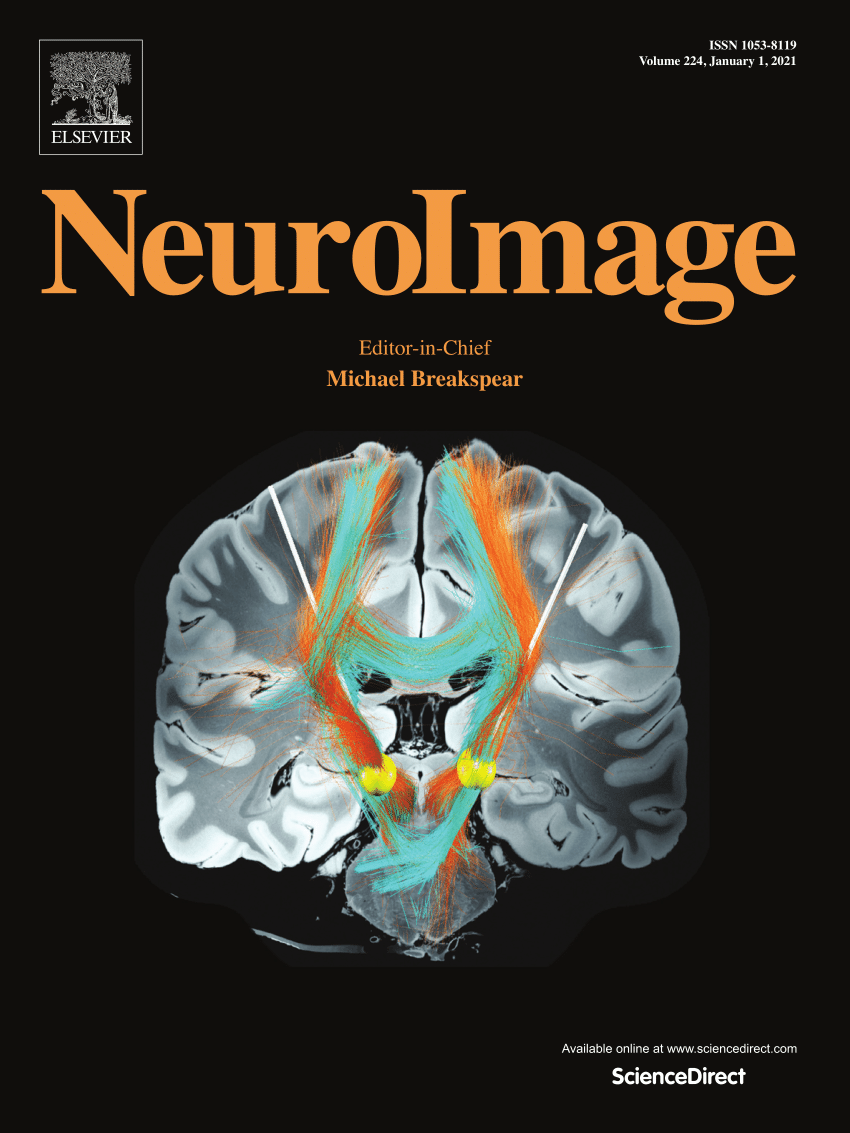Neural signatures and personalized neuromodulation in a subject experiencing context-dependent inhibitory control deficits
IF 4.5
2区 医学
Q1 NEUROIMAGING
引用次数: 0
Abstract
The ability to override prepotent actions is critical to control impulses and adjust behavior depending on goals and contextual needs. In this study, we investigate the inhibitory control abilities of a patient diagnosed with Klüver-Bucy Syndrome following a left temporal resection. The patient presented with disruptive hypersexuality symptoms akin to compulsions, leading to the inability to control and suppress inappropriate actions. The patient was recruited for the current research study while undergoing intracranial monitoring for epilepsy, to investigate the cognitive and neural processes underlying the patient’s inhibitory control symptoms. We formulated the hypothesis that a reactive inhibitory control deficit emerges in response to provocative triggers, and we designed a personalized paradigm pairing arousing images with a classic inhibitory control task. We not only confirmed disrupted performance following exposure to triggering, provocative material, but we also leveraged the simultaneously recorded neural data to identify a biomarker reflecting inhibitory control failures. Next, we repeated the experimental paradigm during and after personalized neuromodulation via direct high-frequency stimulation of the right inferior frontal cortex. The patient displayed a marked improvement in his behavior during neuromodulation, mirrored by changes in neural activity, spanning spectral features, event-related potentials and functional connectivity. Altogether, our study revealed that the patient’s symptoms were not due to a global inhibition deficit, but to a specific control issue triggered by exposure to provocative material. Overall, our work showcases a feasible, effective approach towards data-driven personalized neuromodulation, which could be leveraged to mitigate specific inhibitory control deficits and potentially other symptoms of executive dysfunction.
经历情境依赖抑制控制缺陷的受试者的神经特征和个性化神经调节。
克服优势行为的能力对于控制冲动和根据目标和环境需求调整行为至关重要。在这项研究中,我们研究了一名被诊断为kl ver- bucy综合征的患者在左颞切除术后的抑制控制能力。患者表现出类似强迫症的破坏性性欲亢进症状,导致无法控制和抑制不当行为。该患者在接受颅内癫痫监测的同时被招募入本研究,以研究患者抑制性控制症状背后的认知和神经过程。我们提出了一个假设,即反应性抑制控制缺陷出现在对挑衅触发的反应中,我们设计了一个个性化的范式,将唤醒图像与经典的抑制控制任务配对。我们不仅确认了暴露于触发性、挑衅性物质后的表现紊乱,而且还利用同时记录的神经数据来识别反映抑制控制失败的生物标志物。接下来,我们通过直接高频刺激右额叶下皮层,在个性化神经调节期间和之后重复实验范式。患者在神经调节过程中表现出明显的行为改善,反映在神经活动、跨谱特征、事件相关电位和功能连通性的变化上。总之,我们的研究表明,患者的症状不是由于整体抑制缺陷,而是由于暴露于挑衅性材料引发的特定控制问题。总的来说,我们的工作展示了一种可行的、有效的方法来实现数据驱动的个性化神经调节,这可以用来减轻特定的抑制性控制缺陷和潜在的其他执行功能障碍症状。
本文章由计算机程序翻译,如有差异,请以英文原文为准。
求助全文
约1分钟内获得全文
求助全文
来源期刊

NeuroImage
医学-核医学
CiteScore
11.30
自引率
10.50%
发文量
809
审稿时长
63 days
期刊介绍:
NeuroImage, a Journal of Brain Function provides a vehicle for communicating important advances in acquiring, analyzing, and modelling neuroimaging data and in applying these techniques to the study of structure-function and brain-behavior relationships. Though the emphasis is on the macroscopic level of human brain organization, meso-and microscopic neuroimaging across all species will be considered if informative for understanding the aforementioned relationships.
 求助内容:
求助内容: 应助结果提醒方式:
应助结果提醒方式:


